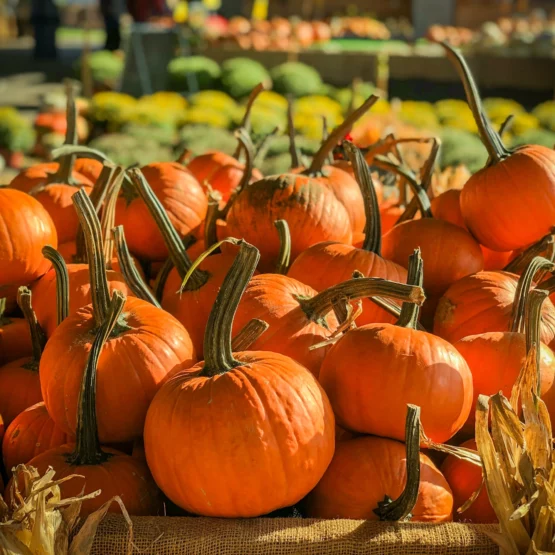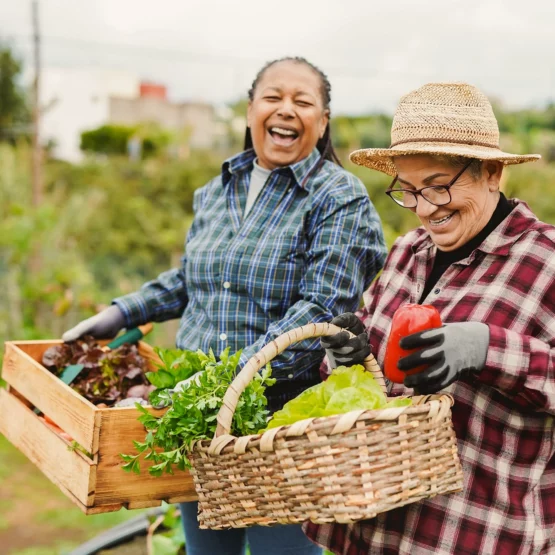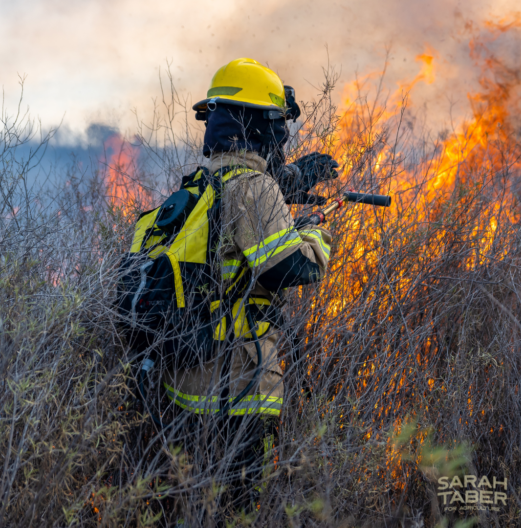Here's How We Put Our Countryside To Work For Everyone
North Carolina can grow a wide range of crops nearly year-round, thanks to our warm coastal plain and cooler mountains. And we’re a day’s drive from major markets in the northeastern corridor. With these advantages, we can double or triple how much North Carolina’s farms earn from agriculture. But we need to invest in our countryside to get there.
Sarah’s three-part plan to attract new investment will strengthen our agricultural sector by growing three key areas.
What We Grow
North Carolina is ideal for high-value crops like berries, carrots, celery, sweet corn, tree nuts, pumpkins, and orchard fruit. These crops can bring 10-100x more revenue than North Carolina’s current standbys like corn, soy, and tobacco.
California and Florida are the traditional powerhouses for fruit and vegetables. But they can’t keep up with demand due to limited space and water. This opens a multi-billion-dollar opportunity for rural North Carolina. Hemp and cannabis are also key opportunities that North Carolina must stop passing over. Adding high-revenue crops to what we already grow and raise will bring more income and jobs to North Carolina, and stop farms from closing and being lost to real estate development.
Don't just take our word for it—read the case studies.
By updating the way we do agriculture to include more produce, we have an amazing opportunity to grow our economy by as much as seven billion dollars over the next decade.


Who Makes A Living In Agriculture
We need on-ramps for new people to become farmers. We need fair funding for Black and other marginalized farmers, who are on the leading edge of farm loss in North Carolina.
And, farmers aren’t all! Strong farm economies need more than just farms. We need facilities to turn high-value crops into the foods people use like nut butters, sauces, noodles, frozen vegetables, and more. Both farms and food plants need skilled workers- and skilled workers need a living wage, or they’ll leave and take their skills elsewhere. By investing in rural infrastructure and workforces, North Carolina can keep farm revenues in our communities and multiply their impact by up to 10x.
How We Do Business
As we invest in rural North Carolina, we should make sure investments provide on-ramps to ownership. This keeps revenue in the state and anchors rural communities. We already have models: Mt. Olive Pickle Company has run a profit-sharing plan for its employees since 1943. This has allowed residents of Mt. Olive to build their own wealth, rather than just export it somewhere else. Profit-sharing, ESOPs, cooperatives, and other on-ramps to ownership are tax-advantaged; proven to increase profitability; and are a common-sense tool to strengthen rural economies.

Additional Issues of Concern
Companion Animal Welfare
North Carolinians who buy pets deserve animals that were raised responsibly, and don’t come with health and behavioral issues from negligent practices.
Unfortunately, North Carolina has one of the country’s worst track records for unregulated pet breeding. We also have one of the highest rates in the nation in pets killed in shelters. According to a study this year, only Mississippi had a higher percentage of animals euthanized in shelters. Only Texas and California had more total animals killed. We shouldn’t be a leader in killing and mistreating pets.
The Commissioner of Agriculture is responsible for overseeing pet shelters and breeding practices. We need someone who enforces existing laws, and advocates with the state legislature to bring our laws up to the same standard already used in the rest of the nation.


FASHION OUTLET
Forest Fire PRevention
Forest fires: we think of them as an out-west problem, not a Southern problem. But we have them here in North Carolina! And the Commissioner of Agriculture is the top officer in the state in charge of handling forest fires.
Nearly half North Carolina is forest- and not all fire is bad! Our forests need a little fire to be healthy. But three things are making it harder for us to keep forest fires under control and out of our homes.
• First: we’re building lots of new neighborhoods in forests. Thanks to that, forest fires hurt more people and damage more property than they did in the past.
• Second: we’re having longer hotter dry spells—just like climate scientists said we should expect. Drier forests burn faster, hotter, and are harder to put out.
• Third: as our fire risks go up, our current Commissioner of Agriculture is cutting our firefighting force. Instead of the strong, flexible response teams we need, North Carolina’s firefighters are left with skeleton crews. They often can’t afford to live near the forests they’re supposed to protect. Their poorly maintained equipment gives out on them in the middle of fighting fires.
The people who protect our state deserve better. I’m proud to stand with our firefighters. We need leadership that will let them do their jobs, and keep all of North Carolina safe.
Join Team Taber
Provide your name and email below to get updates and stay in touch.
Paid for by Sarah Taber for NC. Website design by Express Lane Strategies.

